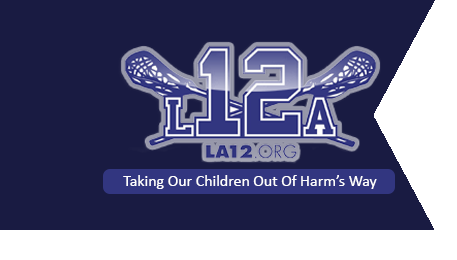Three Bystanders, One Defibrillator Combine to Save a Life
‘He Was My Savior’ Bay Shore oral surgeon, advocate of lifesaving device, uses it to save women
April 28, 2007US Lacrosse Issues Announcement on Importance of AEDs
August 7, 2007DICK CASE
POST-STANDARD COLUMNIST
“Without their help, the outcome would have been far different,” according to Jayne Doust.
May 21, Jayne attended her grandson’s lacrosse game at Jamesville-DeWitt Middle School. Without warning, Jayne says she “started making funny noises,” then collapsed. She was having a heart attack.
This is another time when having a defibrillator close by this time at the school made the difference between Jayne lying dead on the field or going home from the hospital 10 days later.
Every school has a defibrillator these days. Maybe they ought to be on the sports fields, also.
“It was quite an experience,” Jayne now says. She’s recovering at home in the town of Marcellus after successful double bypass surgery.
“Three men helped me,” she says. She’s recounting the experience based on what she was told later; she was unconscious at that point. “I guess it was a case of being at the right place at the right time. They were there for the game, too.”
Two physicians gave her CPR and mouth-to-mouth until the defib unit arrived. She was shocked four times. The last by the DeWitt ambulance crew. The fourth try was the luck: “I came back,” she says.
After that, the ambulance took her to Crouse Hospital, then University. Before long, she was taken to surgery. The bypass procedure was performed by Dr. Charles Lutz.
Jayne identifies two of the men who helped as Dr. Gregory Baum, a plastic surgeon, and Dr. Robert Carlin, a vascular surgeon.
“She had no pulse,” Rob Carlin told me. “She was dead.”
The third man was David DeVito, a dentist who was sitting next to Jayne when she was stricken. David says he ran into the school to try to find a defibrillator while the two physicians who were college room-
cians – who were college roommates – worked on Jayne.
“It was total luck,” David recalls. “When I got to the building I saw the loading dock door was open. I jumped up on the dock and just happened to notice the unit hanging on the wall. I don’t know how long it would have taken me if I had to run through the school. There should be signs.”
Greg Baum tells me there was a fourth helper on the scene with the ambulance crew who immediately stuck an IV line into Jayne.
The only thing he knows about the man is that he’s a veteran just back from Iraq.
“That’s the way we do it over there,” the former medic told Greg.
All of the professionals involved in saving Jayne want schools to have a defib unit on the field during athletic meets. There were four games going on that night.
Jayne says she feels “marvelous” and is on a daily regimen of walks in Marcellus Park, which is near her home on Slate Hill Road. Shortly, she goes for a stress test, then begins a daily cardiac rehabilitation program.
Jayne had arterial surgery two years ago but says the heart attack struck suddenly. She’d ignored chest pains as indigestion.
“If it were not for those professionals who stepped out of the crowd when I went into cardiac arrest, I probably would not be here to tell the story,” Jayne’s saying. “Thank goodness schools are required to have defibrillators.”
Let’s get some on the fields, too.
All that water
We had a nasty reminder of the condition of city water pipes again this week, this time in Skunk City. A main broke Sunday at 1204 S. Geddes St., at Rowland Street. The break was fixed; the aftermath is damp and stinky.
City Operations Director Tim Carroll, who went to the scene on Sunday, reports that 24 homes took damage. Representatives of Syracuse United Neighbors also showed up.
Water seeping into the basements of homes on Rowland and Hartson streets brought back memories to residents of the 1981 flood, when a main line on the Geddes Street hill broke, flooding Skunk City.
After touring the area, we’re told Mayor Matt Driscoll got an electrician into the Skunk City basements to crank up dampened water heaters after he learned National Grid doesn’t do that. He also hired a restoration company to pump basements, give them a power wash and add heavy-duty humidifiers.
Tim says most of the work was finished by the end of the week. Meanwhile, the city is handing out forms so residents can file damage claims against the city, if they wish. He said city workers will help them “sort out the paperwork” later.
Some of the homeowners say their insurance covers the damage; some claims have been turned down by insurance carriers.
Councilor Pat Hogan, who also got involved, said he admires the neighbors. “Those are hardy folks,” he says. Pat lived on the high ground above Skunk City in 1981.
The wrong number
Rich Puchalski, executive director of Syracuse United Neighbors, had an interesting experience Sunday as he worked to help Skunk City homeowners who took water. He tried to call Mayor Driscoll. He used the second number listed in our Verizon phone book, after the mayor’s City Hall office.
He got a recorded message from the Syracuse University Health Services.
The mayor’s office says that second number is wrong. No one is sure who messed up. Best to dial 448-2489 for the city help line when Matt’s out.
Dick Case writes Tuesday, Thursday, Saturday and Sunday. Reach him at dcase@syracuse.com or 470-2254.
© 2007 The Post-Standard. Used with permission. All Rights Reserved.

